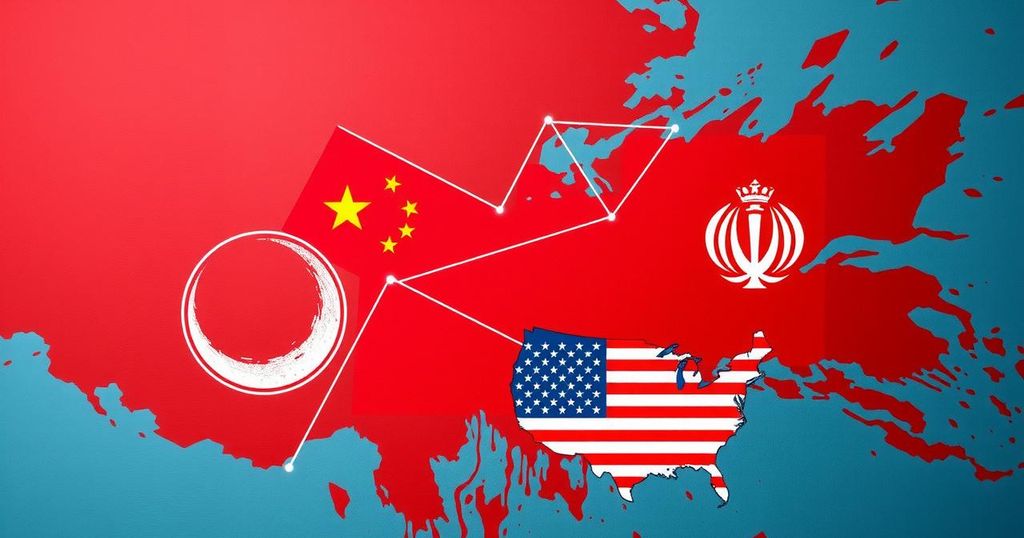Closer ties between China and Iran, highlighted by a March 14 meeting in Beijing, may prompt a stronger US response concerning nuclear negotiations. China aims to enhance its influence in the Middle East while promoting non-proliferation. Iran’s leadership has firmly rejected US proposals, setting the stage for potential escalation.
Recent developments reveal a deepening relationship between China and Iran that may draw a stronger response from the United States regarding the nuclear issue. Analysts suggest that Beijing’s multilateral engagement with Tehran and Moscow serves to enhance its influence in the Middle East while potentially increasing pressure from Washington.
During talks in Beijing on March 14, the three nations reaffirmed their commitment to non-proliferation and collectively criticized sanctions and military threats. Chinese Foreign Minister Wang Yi proposed a five-point plan aimed at resolving the Iranian nuclear situation, which emphasized adherence to the Joint Comprehensive Plan of Action (JCPOA), a deal the US withdrew from under President Trump.
Tehran reacted positively to these discussions, while the Supreme Leader, Ayatollah Ali Khamenei, swiftly dismissed a recent US proposal for bilateral negotiations. Khamenei asserted that Iran would not yield to pressure, especially following Trump’s announcement that military action would be considered if Iran refused to engage in talks.
In conclusion, the strengthening ties between China and Iran may lead to heightened tensions with the United States over nuclear negotiations. As China positions itself as a mediator in the region, its plans to reinforce non-proliferation efforts could provoke a harsher stance from Washington. Iran’s rejection of US proposals accentuates the complexities of the current geopolitical landscape.
Original Source: www.scmp.com






